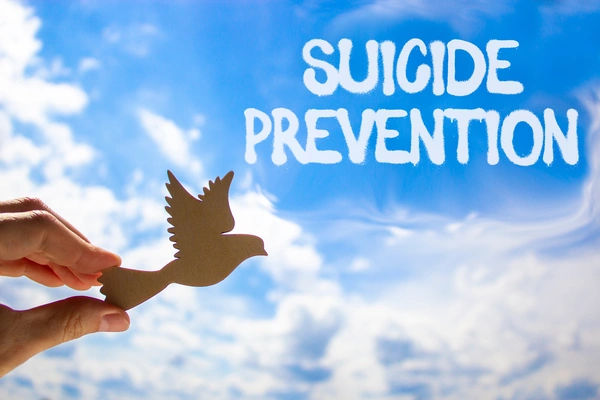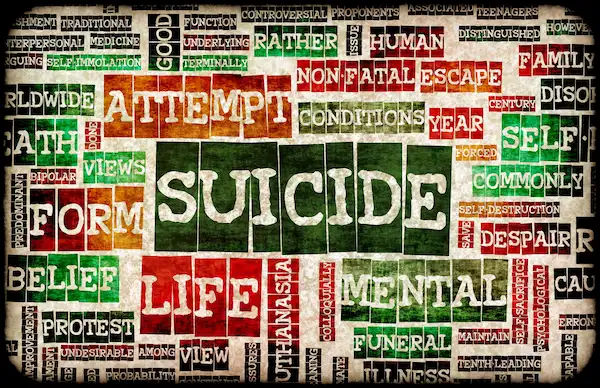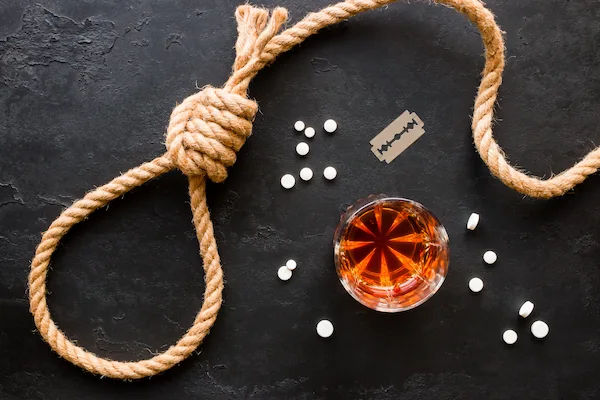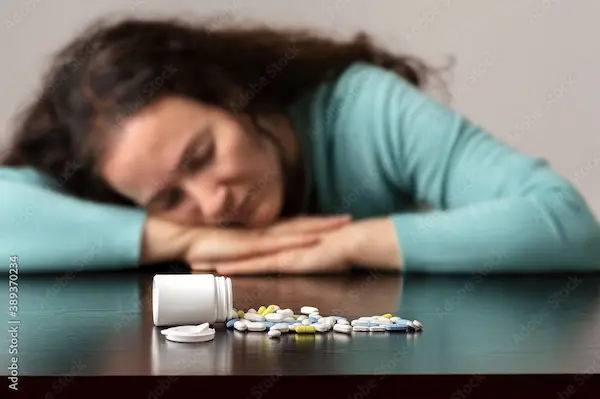Guide to Clinical Psychology Mental Health And Behavioural Sciences/prevent Suicidal Attempts Let9s
Know about the mental health and behavioural sciences, how to prevent suicide, warning signs, risk factors, crisis steps, evidence-based treatment, digital health, telehealth and more.


Introduction
Suicidal thoughts can feel overwhelming, but they are treatable, and many people recover with the right support. This guide brings together clinical psychology, mental health, and behavioural science insights to help you understand risk, recognise warning signs, and take evidence-based steps to prevent suicidal attempts. Whether you’re worried about yourself, a loved one, or a colleague, you’ll find practical strategies grounded in research—from safety planning and “means restriction” to proven therapies like CBT and DBT. You’ll also learn how to build protective factors, navigate care (including online and telehealth options), and support recovery after a crisis. Throughout, we integrate long-tail knowledge like safety plans, crisis response, and caring contacts while keeping language clear and compassionate. If symptoms persist beyond two weeks, consult a doctor online with Apollo24|7 for further evaluation and support. Let’s move from fear to informed action together.
Consult a Top Psychiatrist for Personalised Advice
Understanding Suicide Through Clinical Psychology
Clinical psychology frames suicidal ideation as a complex interaction of thoughts, feelings, behaviours, and context.
Rather than viewing suicide as a character flaw or “weakness,” clinicians understand it as a signal of intolerable psychological pain coupled with reduced problem-solving capacity. Mental health research shows that suicidal risk fluctuates; it’s not constant. This is critical because even brief windows of relief can be used to implement safety plans and supports.
What clinical psychology brings to suicide prevention is a test-and-learn approach: assess risk, identify triggers, teach coping skills, and modify environments to reduce access to lethal means. Behavioural science emphasises the “cognitive-emotional-behavioural triangle” how hopeless thoughts amplify painful feelings, which can drive impulsive behaviours. Short, targeted interventions taught in therapy, like distress tolerance and cognitive reframing, can interrupt this cycle.
Recognising Warning Signs and Risk Factors
Warning signs include talking about wanting to die; expressing hopelessness (“no reason to live”); increased
withdrawal; giving away possessions; risky or self-destructive behaviour; sudden calm after agitation; and rehearsing
methods. Subtle cues can include sleep changes, appetite shifts, spikes in alcohol or drug use, and an inability to
concentrate. Trusted friends, family, and coworkers often notice behavioural changes first.
Risk factors span clinical, situational, and biological domains. Clinical diagnoses like major depression, bipolar
disorder, schizophrenia, borderline personality disorder, and substance-use disorders elevate risk. Situational stressors—
relationship conflict, financial or academic pressure, legal issues, grief, and chronic pain—can precipitate crises.
Biological and historical factors include exposure to suicide, prior attempts, and family histories of mental illness.
Evidence consistently identifies prior suicide attempts as the strongest single predictor of future attempts.
Protective factors reduce risk. These include social connection, problem-solving skills, access to mental healthcare, responsibility to loved ones, and a sense of purpose or spirituality. Reminder: suicidal ideation is treatable, and risk is dynamic; early recognition makes prevention highly feasible. Long-tail terms integrated: warning signs of suicide and risk factors; protective factors.
What to Do Right Now: Crisis Steps That Save Lives
In an acute crisis, three steps can help: Ask–Listen–Connect.
- Ask directly: “Are you thinking about suicide?” Research shows that asking does not “put the idea” into someone’s
head. - Listen without judgment: Validate pain. Avoid arguing or minimizing (“you’ll be fine”). Focus on making the person
feel heard and safe. - Connect to help: Call a helpline together, contact emergency services if there is imminent danger, or escort the person to
a hospital/clinic.
Safety planning is a brief, structured tool (e.g., the Stanley–Brown model) used in clinical psychology. It typically includes:
1) Personal warning signs
2) Internal coping strategies (distraction, grounding)
3) People and places that provide distraction
4) People to ask for help
5) Professionals and crisis lines
6) Steps to make the environment safer
Means safety (also called lethal means counselling) is a powerful, evidence-backed prevention strategy. It focuses on temporarily reducing access to items that could be used in a suicide attempt (e.g., securing medications in a lockbox, storing keys separately, removing or locking hazardous tools). Families can “lockerize” the home during high-risk periods. A unique perspective: treat means safety like weatherproofing—small, practical adjustments that significantly reduce harm when the “storm” hits. Long-tail terms integrated: safety planning for suicidal thoughts; means restriction and lethal means counselling.
Evidence-Based Treatments That Work
Cognitive behavioural therapy (CBT) and dialectical behaviour therapy (DBT) have robust evidence for reducing
suicidal ideation and behaviours. CBT targets distorted thoughts (“nothing will ever change”) and builds problem-solving and behavioural activation. DBT, developed for individuals with intense emotions and self-harm behaviours, combines mindfulness, distress tolerance, emotion regulation, and interpersonal effectiveness. Randomised trials show DBT can reduce self-harm and suicidal behaviours in high-risk groups.
Medications can be helpful, particularly for treatable conditions like major depression, bipolar disorder, anxiety
disorders, and psychosis. Antidepressants, mood stabilisers, and other agents are prescribed based on a thorough clinical evaluation. Physical health matters too: thyroid dysfunction, vitamin D, B12, or folate deficiencies can worsen mood and energy. Apollo24|7 offers convenient home collection for tests such as thyroid profile, vitamin D, and B12 if your doctor recommends them. If symptoms persist beyond two weeks or worsen, consult a doctor online with Apollo24|7 for further evaluation.
Follow-up “caring contacts”—short, supportive messages sent after a visit or discharge—have been associated with reduced suicide attempts and increased engagement in care. The broader approach is collaborative care: coordinated treatment between primary care, psychiatry, psychology, and social support. Unique insight: many people benefit from
“dual-track care”—one track for symptom relief (therapy/medication) and another for life reconstruction (skills, routine, purpose). Long-tail terms integrated: CBT for suicidal ideation; caring contacts.
Supporting a Loved One: Family and Friends
You don’t need to be a clinician to make a difference. Start with a conversation: “I’ve noticed you seem overwhelmed
and withdrawn. I care about you. Are you thinking about harming yourself?” If the answer is yes—or you’re unsure—
stay with the person and contact help. If it’s safe, collaboratively remove or secure potentially dangerous items. Offer to
schedule an appointment, drive them to care, or sit with them while they call a helpline.
Boundaries matter. Supporting someone at risk can be emotionally intense. Agree on check-in times (“I’ll text at 10 am and 7 pm”), identify backup supporters, and set limits that keep both of you safe. Coordinate with schools or workplaces to put temporary accommodations in place (reduced workload, flexible deadlines, or brief leave). Document key information: triggers, medications, emergency contacts, and a shared safety plan.
Caregiver self-care is not optional—it is protective. Maintain sleep, nutrition, and social support for yourself. Seek counselling if you’re overwhelmed. A unique insight: family “micro-rituals” help—regular shared walks, meals, or short calls can become anchors that provide connection without pressure. Long-tail terms integrated: family support for suicidal teenager; crisis response plan.
Digital Tools, Telehealth, and Accessing Care in India
Teleconsultations can reduce barriers to mental healthcare by offering privacy, convenience, and continuity. Consider
an online consultation if you notice persistent low mood, anxiety, sleep disruption, or any suicidal thoughts—especially if travel or stigma is a barrier. Apollo24|7 connects you to qualified mental health professionals who can assess risk, initiate therapy, and, where appropriate, coordinate with psychiatrists for medications. If your condition does not improve after trying these methods, book a physical visit to a doctor with Apollo24|7.
Digital supports include mood trackers, grounding apps, guided breathing, and crisis text or chat lines. They complement, not replace, professional care. For diagnostic clarity, clinicians may recommend screenings like PHQ-9 (depression) or GAD-7 (anxiety). When indicated, Apollo24|7 offers home sample collection for labs (e.g., thyroid function, vitamin D, B12) that can influence mood and energy.
Privacy and consent are essential. Keep records secure, use strong passwords, and clarify who can access your information. Ask providers about confidentiality and limits, especially for minors or where there is acute risk. Long-tail terms integrated: mental health teleconsultation India; Apollo24|7 online mental health doctor.
Special Populations and Contexts
Teens and young adults: Look for rapid mood swings, social withdrawal, sudden declines in academic performance, bullying, or online harassment. Encourage open conversations and limit access to methods at home. Schools can implement gatekeeper training and peer support.
Older adults and chronic illness: Pain, isolation, bereavement, and functional decline can increase risk. Regular check-ins, pain management, and addressing sleep and mobility can help. Primary care often plays a key role in identifying risk.
LGBTQ+, postpartum, and trauma-exposed groups: Minority stress and discrimination elevate risk for LGBTQ+ individuals; affirming care and community connection are protective. Perinatal mood disorders can include intrusive, frightening thoughts—urgent assessment and tailored treatment are essential. Trauma survivors may experience triggers; trauma-informed therapy helps restore safety.
Building Protective Factors and Daily Habits
Small, consistent habits powerfully shape mental health. Sleep is foundational—aim for regular bed and wake times, with a wind-down routine and reduced screen exposure. Movement boosts mood; even brisk 10-minute walks can help. Sunlight exposure supports circadian rhythms. Nourishing, regular meals stabilise energy and reduce irritability.
Skill-building matters. Distress tolerance (e.g., paced breathing, temperature changes, grounding exercises) helps ride out emotional waves. Problem-solving and behavioural activation counter hopelessness by breaking tasks into micro-steps. Social connection—weekly calls, shared meals, volunteering—buffers stress. If you use alcohol or substances, consider harm-reduction strategies and support, as substances can intensify suicidal thoughts.
Myths vs. Facts
- Myth: Talking about suicide puts the idea in someone’s head. Fact: Asking directly can reduce risk by opening a path to help.
- Myth: People who talk about suicide won’t do it. Fact: Many who die by suicide communicated their intent beforehand.
- Myth: Suicide happens without warning. Fact: Warning signs are often present—though sometimes subtle.
- Myth: Once someone is suicidal, they will always feel that way. Fact: Suicidal ideation is often transient and treatable.
- Myth: Only people with “serious” mental illness are at risk. Fact: Risk is multifactorial; acute stressors and access to
lethal means matter.
After a Crisis: Recovery, Postvention, and Relapse Prevention
The period after an emergency department or hospital visit is high risk but also a powerful opportunity for change.
Before discharge, ensure a safety plan is updated, lethal means counselling is completed, and follow-up appointments
are scheduled within one week. Caring contacts—brief supportive messages—help bridge the gap to ongoing care.
Returning to work or school should be gradual, with reasonable adjustments. Clarify who needs to know what, protect privacy, and agree on a check-in schedule. Track sleep, mood, and triggers. Incorporate relapse prevention: review early warning signs, rehearse coping strategies, and refresh your support network. If symptoms persist beyond two weeks, consult a doctor online with Apollo24|7 or arrange a follow-up visit.
If you’ve lost someone to suicide, your grief is valid and complex. Seek specialised bereavement support or peer groups; postvention reduces risk and fosters healing. Unique insight: “future-dating” hope—schedule small future commitments (a class, a project, a trip) to seed a sense of continuity and purpose.
Conclusion
Suicidal thoughts are a signal, not a destiny. Clinical psychology, mental health care, and behavioural science offer practical, proven tools to prevent attempts and build a path back to safety and purpose. Start with the essentials: ask the hard question, listen without judgment, and connect to help. Use a personalised safety plan and make the home environment safer. Seek evidence-based treatments, CBT or DBT and address physical health factors that can amplify distress. Families and communities have a powerful role: create supportive routines, reduce stigma, and put simple, clear crisis steps in place. If symptoms persist beyond two weeks, consult a doctor online with Apollo24|7, and consider home lab collection to rule out treatable contributors to low mood and fatigue. Recovery is rarely a straight line, but small, consistent actions add up. The sooner we act, the more lives we save—and the more futures we protect.
Consult a Top Psychiatrist for Personalised Advice
Consult a Top Psychiatrist for Personalised Advice

Dr Rohit Ranjan
Psychiatrist
10 Years • MBBS, MD (Psychiatry)
Bengaluru
Apollo Medical Center, Marathahalli, Bengaluru
(25+ Patients)

Dr. Kamal Kishore Verma
Psychiatrist
15 Years • MBBS, MD (SPM), DNB (Psychiatry)
Mathura
PEACEFUL MIND CLINIC, Mathura
(50+ Patients)

Dr Harish K S
Psychiatrist
6 Years • MBBS, MD Pychaitrist
Bengaluru
Apollo Clinic, JP nagar, Bengaluru

Dr. Satrajit Ghosal
Psychiatrist
8 Years • MBBS,MD(PSYCHIATRY)
Howrah
LILA HEALTH POINT, Howrah

Dr. Kommoju Venkata Eswar
Psychiatrist
8 Years • MBBS, MD Psychiatry
Avenue
Wellness Point, Avenue
Consult a Top Psychiatrist for Personalised Advice

Dr Rohit Ranjan
Psychiatrist
10 Years • MBBS, MD (Psychiatry)
Bengaluru
Apollo Medical Center, Marathahalli, Bengaluru
(25+ Patients)

Dr. Kamal Kishore Verma
Psychiatrist
15 Years • MBBS, MD (SPM), DNB (Psychiatry)
Mathura
PEACEFUL MIND CLINIC, Mathura
(50+ Patients)

Dr Harish K S
Psychiatrist
6 Years • MBBS, MD Pychaitrist
Bengaluru
Apollo Clinic, JP nagar, Bengaluru

Dr. Satrajit Ghosal
Psychiatrist
8 Years • MBBS,MD(PSYCHIATRY)
Howrah
LILA HEALTH POINT, Howrah

Dr. Kommoju Venkata Eswar
Psychiatrist
8 Years • MBBS, MD Psychiatry
Avenue
Wellness Point, Avenue
More articles from Suicide and suicidal thoughts
Frequently Asked Questions
1) What are the first steps if I’m having suicidal thoughts?
Tell someone you trust, remove or secure any dangerous items, and call a crisis line or emergency services. Create a safety plan. Consider teleconsultation for rapid support; Apollo24|7 can connect you with clinicians.
2) How does CBT help with suicidal ideation?
CBT targets unhelpful thoughts, builds problem-solving, and increases meaningful activity. Many people see improvements when CBT is combined with a safety plan and caring contacts.
3) What is restriction, and why is it important?
Means restriction temporarily reduces access to lethal methods (e.g., locking medications). It’s one of the most effective suicide prevention strategies and buys time for help to work.
4) When should I seek professional help?
Immediately if there is imminent risk; otherwise, seek help if low mood, anxiety, or suicidal thoughts last beyond two weeks or affect daily functioning. You can consult a doctor online with Apollo24|7 for further evaluation.
5) Are lab tests relevant to mental health?
Sometimes. Thyroid issues and vitamin deficiencies can worsen mood and energy. If your doctor advises, Apollo24|7 offers home collection for tests like thyroid function, vitamin D, and B12.



